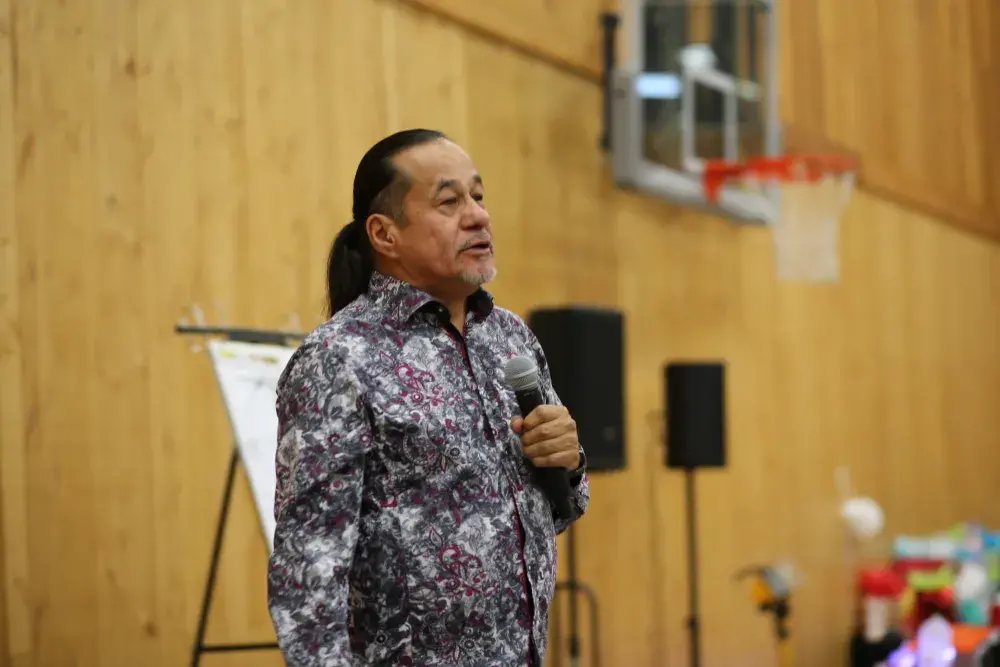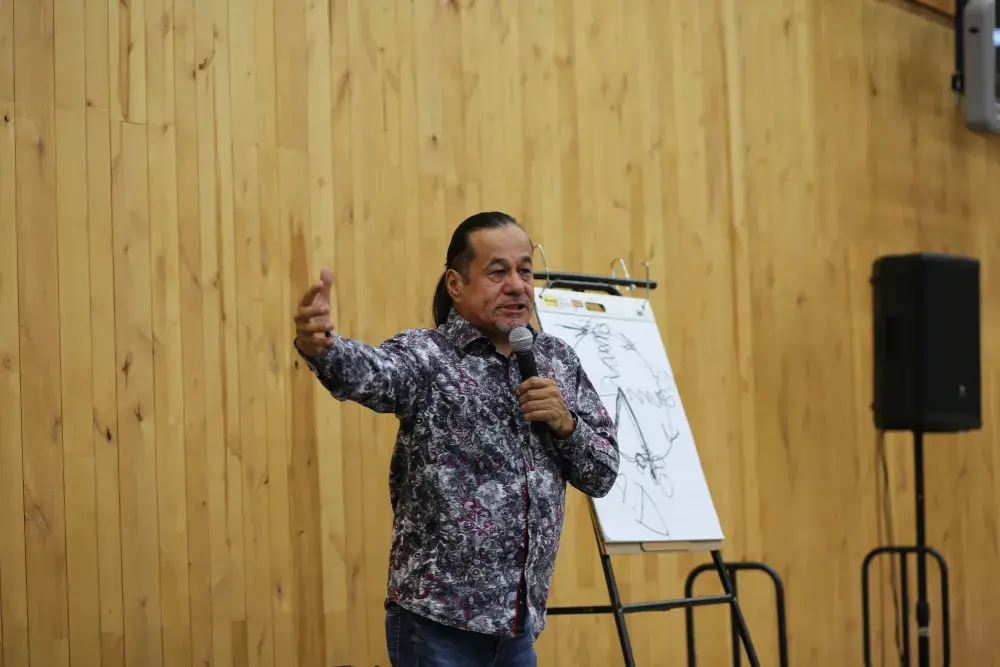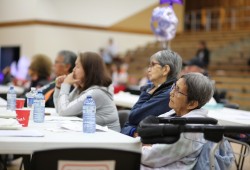According to comedian Don Burnstick, there are four actions needed to improve the wellness of First Nations: Pray, share, cry and laugh.
“If you want to heal the trauma, do these things – but you have to do all four,” said Burnstick during a recent talk in Port Alberni, part of the NTC Disability Access Awareness Committee Health Ability Fair, held Oct. 25-26 at the Alberni Athletic Hall.
Burnstick, who is a member of the Alexander First Nation from Alberta, regularly brings his insights and sense of humour to communities across North America. At the recent stop in Port Alberni he addressed the lasting intergenerational effects of trauma on Indigenous people, and how this can be healed in the same way that the body eventually takes care of an external cut.
“Inside, you get hurt, you have the ability to heal in the same way,” said Burnstick. “You’ve got to keep getting up, you’ve got to keep helping our people. But the best way to help our people is to help yourself.”
The health ability fair delved into a variety of topics concerning the wellness of Nuu-cha-nulth-aht, including harm reduction for substance use, dietary health and communicable diseases.
Burnstick held a session called Living in Balance, Medicine Wheel Teachings, which began with a drawing of a circle marked by four generational points: child, youth, adult and elder. These periods normally begin in respective age intervals of 0, 20, 40 and 60, but Burnstick noted that health issues in First Nations communities have brought about the senior years sooner.
“I know 45-year-olds who live like elders, how they move around, how they eat,” he said.
Burnstick noted that social conditions for his home in Hobbema, north of Edmonton, worsened when a large cash settlement came to the First Nation when he was a young man.
“About 35 years ago we got a bunch of money,” he said. “When you put money into a situation with a bunch of unhealthy people who’ve never had money before, man I tell you, those were hard times for our people.”
“The violence, the suicides, the teen pregnancies, the gangs, it spills over,” added Burnstick. “Drugs, alcohol and sexual abuse. These three go hand in hand for Indigenous people.”
These social issues began with European contact, observed the comedian, a time when unfamiliar diseases weakened social systems that had sustained Indigenous people for countless generations.
“We have this natural process of learning, for thousands of years our people lived this way,” he said. “The contact was the first crack in that shield.”
Hundreds of years later, Burnstick reflected that some of his people “are always in a state of grief” amid the ongoing effects of colonization – but in his talk he included a personal story as example of how pain can be overcome.
Last year the 60-year-old was paralyzed with a spinal condition. He was in a wheelchair, and had spoken to his family preparing them for his eventual passing if the condition worsened. But hope came when doctors introduced potential for a complex medical procedure.
“They said, ‘If you can take the pain, Mr. Burnstick, we can fix you. But we cannot give you anything for your pain’,” he recalled.
Burnstick went ahead with the surgery, which entailed removing eight vertebrae from his neck for the insertion of steel rods, then the spinal pieces were put back.
Afterwards he remembers waking up, screaming in agony.
“And that’s when I started praying,” said Burnstick. “I heard the Creator talking to me. He said, ‘There’s only one person that loves you as much as I do. That’s your mom’.”
“I felt my mother’s kiss on my cheek,” he added, tearfully.
Although he still carries a disabled sign in his car, the comedian is now active again, walking the stage freely. Like the loss and trauma he has endured in his life, fully realizing the agony of the surgery has helped in his recovery.
“I talked about it, I cried about it, and I healed,” said Burnstick. “You’ve got to fight for your life…Last year I fought for my life.”



